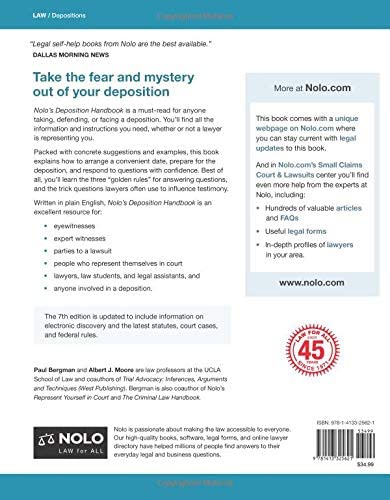
If a defendant has been found guilty of a criminal offense, they can be released from prison on an Exonerated Bond. In this case, the defendant surrenders, is convicted of the crime, and is released on bond. How does an exonerated bail work? How can law be applied to the case? Let's take a look at some possible scenarios. What would happen if you were held, surrendered and convicted? What is the best way to release yourself?
Bail bond exonerated
A bail bond that is exonerated allows an individual to be released from custody after being charged. Although a bail bonds is an effective way to ensure that the defendant appears in court, they do not have to be related to the verdict. If a defendant is convicted for a crime they will still need to pay substantial court costs. A defendant who is exonerated from bail bonds has a greater incentive to appear in court.

Defendant surrenders
If released on bail by a court, a defendant might surrender to an official. The official who has custody of the defendant at bail is the person who would have custody if the defendant had been committed. The official will then receive the defendant and place him/her in custody, as though the defendant were committed. The official will then issue a certificate acknowledging the surrender of the defendant.
Defendant is convicted for committing a crime
When a defendant is found not guilty, they are often released on bail. This may be due to an early guilty plea, the prosecution dropping charges or insufficient evidence. Exoneration can be beneficial for some people but can be dangerous. Even if someone has been exonerated, they could still be sentenced or served jail time. Fortunately, there are ways to avoid being a victim of this situation.
The defendant is released
Defendants can be released from prison on exonerated bail if their case is dismissed. As soon as the release form is signed, the defendant can take a guarantor with him or her and leave jail. After pleading guilty or not guilty to the charges, defendant is automatically entered into the court record. Even if the defendant is not guilty, he still has to pay court fees.

Requirements for exonerated bail bond
When their charges have been dismissed, a defendant can request an exemption bail bond. The defendant can sign a release form before the judge releases them from custody. A bail bond exonerated may not be granted in certain cases. If the defendant fails to appear at all court dates, this can happen. There are many avenues to appeal an exonerated bond. Here are some steps to request an exonerated bail bonds.
FAQ
Do lawyers make more money than other professions?
No. Lawyers typically earn less than doctors, dentists, engineers, architects, teachers, nurses, accountants, pharmacists, and veterinarians. Lawyers are paid an average of $55,000 each year.
What is the difference between a transactional lawyer and a litigation lawyer?
The main difference between an attorney specializing in transactional law and those specializing in litigation is the type of legal problems they are likely to encounter. Transactional attorneys deal with contracts, real-estate transactions, business formations, intellectual property issues, and other matters. Litigation attorneys deal with disputes involving corporations. Partnerships, trusts, estates. Insurance claims. Personal injury cases.
These two types of attorneys require different skills and knowledge for each type case. For example, if you were considering hiring a transactional attorney, he would probably need to know how to draft agreements, prepare documents, negotiate terms, handle conflicts, etc. A litigation attorney must be familiar with the rules of evidence, statutes of limitations, rules of discovery, etc.
You might also find other differences depending on where your client is located. An attorney in New York City might not know as much about California laws as one who is practicing in California. A Florida lawyer would also be less familiar than someone who practices in Texas.
How can a lawyer achieve 7 figures?
An attorney should be able to understand how law affects business transactions. A lawyer should be able to understand the business world and their operations. This knowledge allows them advice clients on legal issues from start-to-finish.
They should be able to negotiate contracts, and ensure that all sides are happy with the final result. A lawyer must be able to write briefs and other documents in court proceedings. Furthermore, lawyers should be able deal with people and build connections.
You will need to be able communicate with colleagues, clients, and employees if you are to make $7,000 an hour. Effective time management skills are essential to ensure you meet deadlines. It is important to be organized and able multitask.
What if I don't want to go to law school but still want to be a lawyer?
Yes, you can!
An unrelated degree is acceptable if the law system and its workings are well understood. It is important to understand how laws work together, and how they differ.
You must know how to read and interpret statutes, regulations, court decisions, and case law. It is important to understand the basics of administrative, constitutional, contract, criminal, and property law.
You must pass the bar examination to practice law. The bar exam tests your knowledge of the law and your ability to apply the law to real-life situations. It measures your knowledge of the law, your ability and ability to analyze cases and create briefs.
There are two parts to the bar exam: the oral and written sections. Multiple choice questions make up the written portion. Simulated trials are the oral part. Before you can sit for the bar examination, you will need to prepare for it.
Passing the bar exam is not enough. You must also be admitted to the state where your intention to practice legal profession. Different jurisdictions have different admission requirements. You can check with State Bar Association for information.
What is a pro-bono lawyer?
A pro bono lawyer provides free legal services to people who cannot afford them. These lawyers are often part-time lawyers, but they also work on their own. Pro bono work can be anything from representing the indigent to helping elderly clients with issues related to estate planning.
Statistics
- The states that saw the biggest increase in average salary over the last 5 years are Rhode Island (+26.6%), Wisconsin (+24.1), Massachusetts (23.2%), Wyoming (18.3%), and North Dakota (18.1%). (legal.io)
- According to the Occupational Outlook Handbook published by the Bureau of Labor Statistics, the national average annual wage of a lawyer is $144,230. (legal.io)
- A Johns Hopkins study of more than 100 professions found lawyers the most likely to have severe depression—four times more likely than the average person. (rasmussen.edu)
- The median annual salary for lawyers in 2016 was $118,160, according to the U.S. Bureau of Labor Statistics (BLS). (rasmussen.edu)
- According to the Bureau of Labor Statistics, the average annual salary for lawyers in 2020 was $126,930. (stfrancislaw.com)
External Links
How To
How to make the will with a lawyer
A will, which is an important legal document, determines who gets what upon your death. It also contains instructions regarding how to pay any financial debts.
A will must be written by a solicitor and signed by at least two witnesses. You have the option to opt not to create a will if everything is to be left to someone else, with no restrictions on how they spend it. This can cause problems later, if you are unable or unwilling to consent to medical treatment.
If you don't have a will, then the state will name trustees to manage your estate up until you die. This includes paying off all your debts and giving away any property you own. The trustees will then sell your house and divide the proceeds between your beneficiaries if there is not a will. They will also charge a fee for administering your estate.
A will is necessary for three reasons. First, it protects your loved people from being left bankrupt. It ensures your wishes are fulfilled after you pass away. Thirdly, it makes life easier for your executor (appointed person to carry out your wishes).
Contact a solicitor first to discuss your options. The cost of a Will will differ depending on whether the person is single, married, widowed, or divorced. In addition to writing a will, solicitors can advise you on other matters such as:
-
Give gifts to your family
-
Choosing guardians for children
-
Repayment of loans
-
Manage your affairs while still alive
-
Avoid probate
-
How to avoid capital gain tax on assets being sold
-
What happens to your home if you die before you sell it
-
Who pays funeral costs
You can either write your own will or ask someone you know to help. Remember, however, that if you sign a will at the request of another person, you cannot change it afterward.